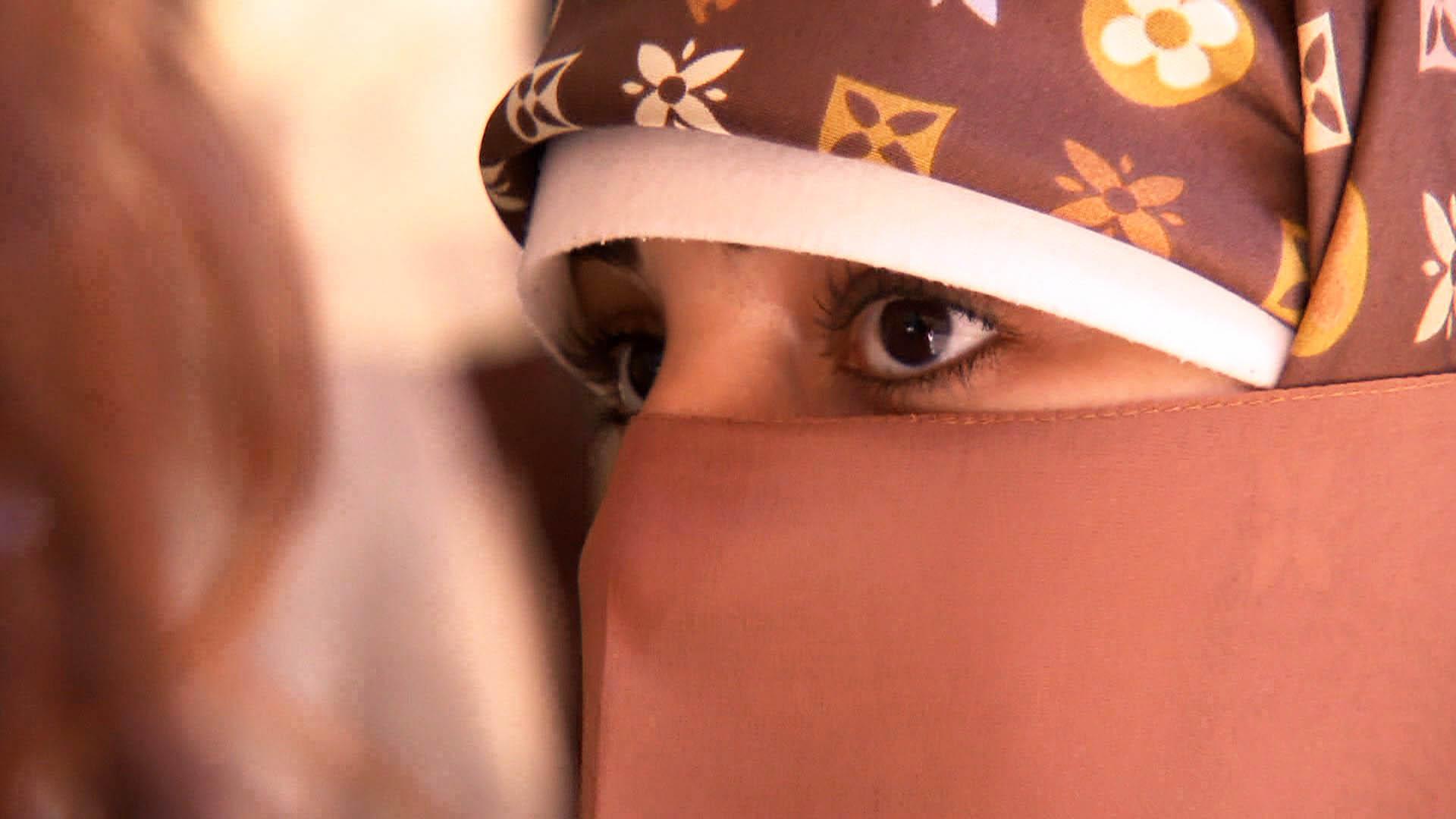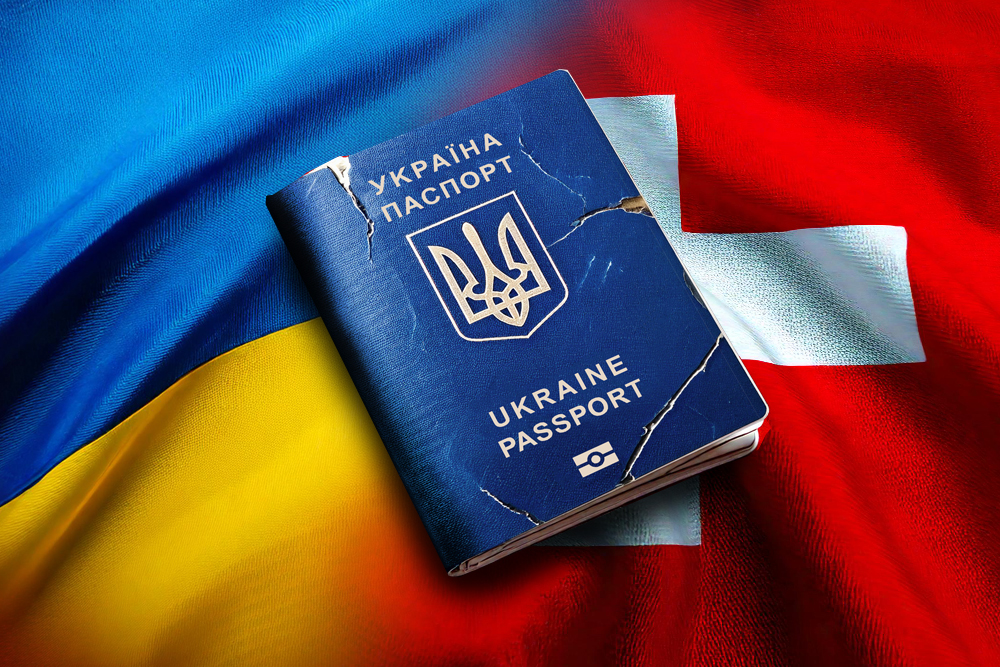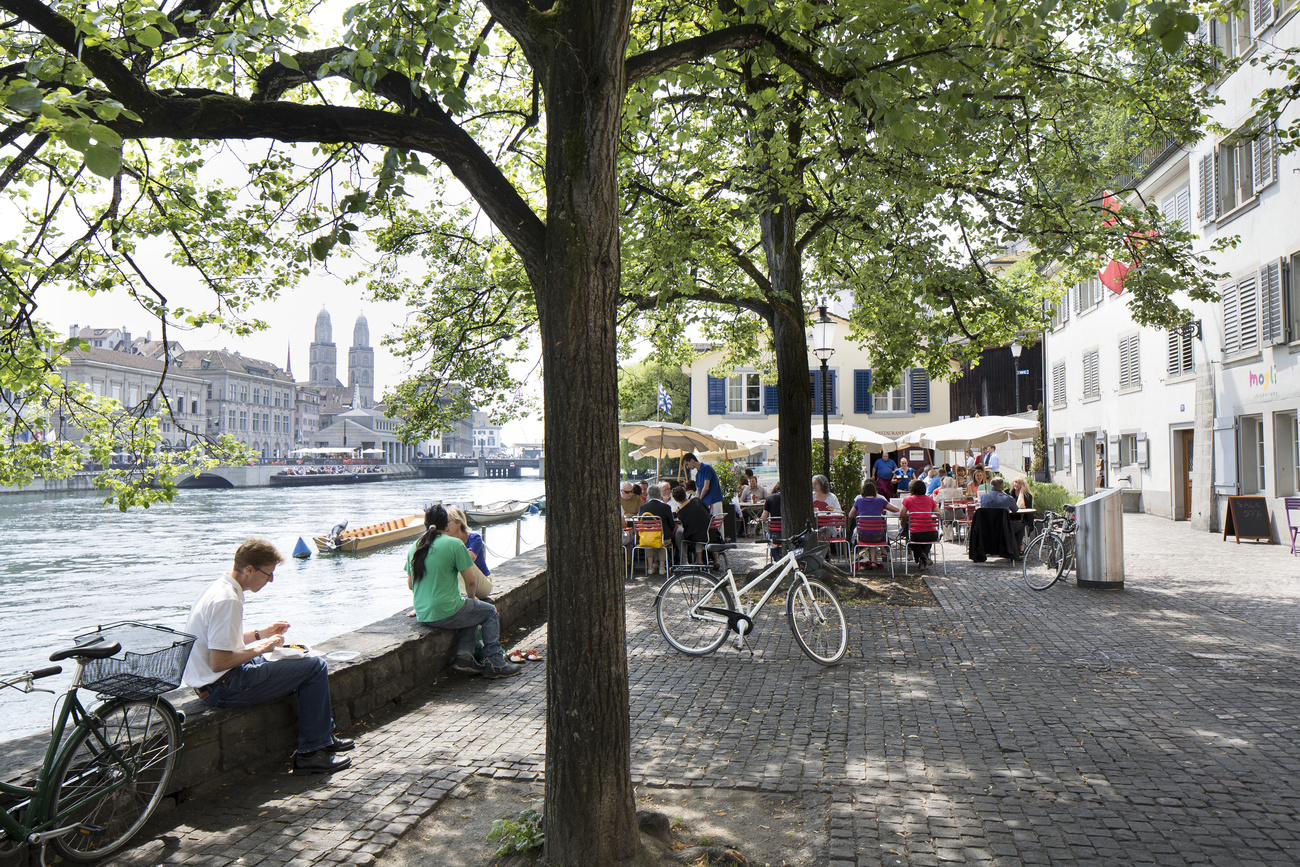Applying the ‘burka ban’ will not be easy

The decision by voters in the Swiss canton of Ticino to outlaw veils or clothing that hides the face in public places is seen as a test case for Switzerland. But as Ticino’s parliament prepares to discuss the ban, concerns have been raised about how to enforce it and its effects on tourism.
The initiative was accepted by 65.4% of Ticino citizens in September 2013 and was the first time that a ban of this kind, which mainly concerns the wearing of the burka and niqab, had been decided by a popular vote.
It has already inspired an initiative for a Switzerland-wide ban, launched at the end of September this year.
Two years on and the Italian-speaking southern canton of Ticino is now preparing to put the measure into force. This means first making an amendment to the law on public order.
“The legislative committee should have completed its report by the end of October. The cantonal parliament plans to discuss it in December, after which referendums might be held,” explained Ticino cantonal parliamentarian Natalia Ferrara Micocci, from the centre-right Radical Party.
No urgency
The parliamentarian believes, however, that there is no urgency in applying the new law.
“Burkas and niqabs are not really a problem in Ticino, where there are very few fully veiled women. We should remember that the ban also applies to people who mask their faces during demonstrations or protests,” she said.
Motorcyclists, who already have to remove their helmets in public places, police officers, military and medical personnel will be exempt from the law.
“Enforcing the law will be difficult,” admitted Ferrara Micocci, who is a former prosecutor. “A degree of common sense will be necessary, given that there is no legal obligation to comply. Yes, sanctions can be imposed in the form of a fine, but the person fined can refuse to take off her burka or niqab.”

More
Ticino as a test case for a burka ban
“We are nonetheless counting on the cooperation of the hotel sector, for instance, to make their Arab clientele aware of the situation. No exceptions are foreseen, not even for tourists. The people’s will, as expressed by the vote, will must be respected, and anyone who breaks the law will be fined.”
Bad for tourism?
So what do the tourism operators say? “Applying the anti-burka law is likely to cause some tourists from the Gulf countries to shun Ticino, which would be a loss,” pointed out Lorenzo Pianezzi, president of the Ticino section of the Swiss Hotel Association and owner of the Walter Au Lac hotel in Lugano.
“Visitors from these countries currently account for just 2% of tourists, but their numbers have been increasing in recent years. In 2013, there were 32,000 overnight stays by Arab visitors in Ticino; in 2014 there were 40,000 – and the trend is on the rise. These figures are significant in a time of economic crisis when foreign competition and the strong franc having an impact on business.”
Pianezzi believes that some families will not come back to his hotel if the ban is really introduced.
“I would point out that I have never seen women wearing the burka in Lugano, only some niqabs. Personally, I think we should distinguish between tourists who are just passing through and people who live here all year round. We need to be flexible. I also wonder how the Ticino police will actually enforce the ban. English- or Arabic-speaking officers would have to be deployed across the canton,” he said.
“Personally,” concluded the hotel owner, “I will take care not to inform my clients about the new measure. We get many tourists from the Gulf, and they spend an average of CHF500 ($526) a day per person, compared with CHF120 by Dutch tourists and CHF170 by Germans. They also stay with us for longer.”
“Not discriminatory”
Elia Frapolli, the director of the Ticino tourism board, was more nuanced. “So far we have not seen any negative impact from the approval of the anti-burka initiative. It must be said that fully veiled tourists are an exception. The number of visitors from the Gulf countries continues to grow. From January to June 2015 it increased by 40%.”

He nonetheless admitted that, in the long term, the law may jeopardise “the constant increase in this attractive category of visitors, which will not be willing to give up wearing the burka or the niqab and could choose other destinations”.
Frapolli does not yet know how the ban will be applied in practice. “We are waiting to learn, in particular from the police, what the different procedures and sanctions will be,” he explained.
“As soon as we know, we will be transparent and inform the travel agencies and other tour operators, while emphasising that the new rule is not meant to be discriminatory. We have to get the message across that Ticino is and will remain a welcoming destination.”
Anti-burka initiative
Filed by the movement “Il GuastafesteExternal link” (“The Killjoy”), the initiative to outlaw veils or clothing that hides the face in public places, which came to be known as the “anti-burka initiative,” was accepted by 65.4% of Ticino citizens on September 22, 2013. It called for the ban to be included in the cantonal constitution. The author of the initiative based his text on the anti-burka law approved by the French parliament in autumn 2010, and which entered into force in April 2011.
The Ticino cantonal parliament will discuss the bill, currently under preparation by its legislative committee, in its December session.
The introduction of the ban also depends on the results of any possible referendums. In 2013 lawyer and former prosecutor Paolo Bernasconi declared that he was ready, if the law was enforced, to bring the matter before the Swiss Federal Supreme Court and, if necessary, the European Court of Human Rights in Strasbourg.
Translated from French by Julia Bassam

In compliance with the JTI standards
More: SWI swissinfo.ch certified by the Journalism Trust Initiative










You can find an overview of ongoing debates with our journalists here . Please join us!
If you want to start a conversation about a topic raised in this article or want to report factual errors, email us at english@swissinfo.ch.